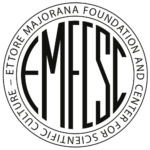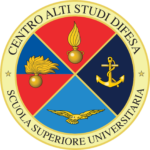The Launch of the David School and the Birth of the Erice School:
A Pioneering Path in Science Diplomacy and International Cooperation
In 2017, a Horizon project led by Sorbonne University, with the University of Padua, initiated a new research field dedicated to Science Diplomacy and International Cooperation. This project aimed to demonstrate how scientific diplomacy can foster peace and build trust between nations, encouraging shared development. Through archival research, testimony gathering, and the identification of key figures, the project highlighted how dialogue between scientists and diplomats can drive global cooperation.
2021 – The Lisbon Turning Point
In 2021, a pivotal step took place in Lisbon, where discussions with representatives from European universities and research centers sparked the idea of forming an international cooperation network. This network would involve leading scientific organizations and the Italian Ministry of Foreign Affairs, further strengthening ties among institutions.
2022 – The First Edition of the David School in Padua
In 2022, the David School’s first edition was held in Padua and Rome, thanks to a collaboration between the University of Padua, Roma Tre, and the Venice International University. At this stage, the need for greater involvement of the Ministry of Foreign Affairs in enhancing scientific diplomacy emerged. I proposed to Ettore Sequi, Secretary General of the Ministry, that the annual Conference of Science Attachés be hosted in Padua, coinciding with the university’s 800th anniversary, and he welcomed the proposal.
Ahead of the Conference, a preparatory meeting was organized at Venice International University, attended by the CNR, universities, and science attachés. During the meeting, a guideline document was approved to strengthen the action of the Ministry’s science attaché network, promoting collaboration between academia, industry, and research. The annual Conference in Padua achieved great success, drawing numerous government officials and leaders from the scientific community.
2023 – Second Edition of the David School and the Strengthening of the Erice School
In April 2023, the second edition of the David School was held. A key workshop on Science Diplomacy followed in May at Erice, organized in collaboration with Carla Andreani (Roma Tor Vergata), and involved rectors of Venice International University and international representatives.
To celebrate the 60th anniversary of the Ettore Majorana Center for Scientific Culture, a Steering Committee, chaired by myself (members to be added), was created to revise the 1963 Erice Manifesto with the INFN’s support. Nearly all Venice International University rectors and various international representatives participated in the highly successful celebrations held in Erice in November 2023.
Inspired by these events, David Burigana and I proposed to Prof. Nino Zichichi the establishment of a School dedicated to Science Diplomacy within the Ettore Majorana Center, with the involvement of the CNR, CASD, and Sorbonne Université. Prof. Zichichi embraced the idea, founding the Center’s 41st School, which soon became a permanent initiative, celebrating Erice’s legacy as a beacon of scientific cooperation.
2024 – First Official Meeting of the Erice School and Third Edition of the David School
In 2024, Science Diplomacy continued to gain momentum through a series of events.
In January, a preparatory meeting for the annual Conference of Science Attachés was held at Venice International University, with representatives from the space industry, including Comparini, in preparation for the April conference at the Polytechnic University of Turin. A new document was drafted to refine the previous year’s guidelines. The annual Conference of Science Attachés was held in Turin in April, attended by government officials, representatives of international organizations, and university rectors, including those from Venice International University. In October 2024, the Science and Diplomacy School held its first official meeting in Erice. This gathering, with institutions such as Sorbonne, CNR, INAF, and various international universities, established the Erice School as a permanent reference point for global scientific diplomacy. Shortly after, at the Arctic Circle Assembly in Reykjavík, a major international conference on the Arctic attended by Italy’s Minister of Universities Bernini, we organized a panel to showcase Italy’s Science & Diplomacy initiatives. From October 24 to 26, 2024, the third edition of the David School took place in Padua and at Venice International University. This edition was particularly notable due to the participation of Roberto Battiston, coordinator of the National Space PhD, and Prof. Carlo Baccigalupi of SISSA in Trieste. Their presence opened new pathways for potentially integrating the project structurally, further strengthening the David School’s impact. This ongoing evolution, initiated in 2017, owes its success to the dedicated contributions of the University of Padua and Venice International University, supported by the Ministry of Foreign Affairs and the Ministry of Research. With backing from the CNR, CASD, INAF, numerous research centers, and Sorbonne Université, the Erice School stands as a symbol of international cooperation, promoting the link between science and diplomacy to build a future rooted in peace and shared progress.Ambassador Umberto Vattani, President of Venice International University
Padova, 25 October 2024
News
BACK TO THE FUTURE Operational Laboratory on Law…
Descrizione del seminario: Attraverso la regolamentazione sempre più necessaria delle…
Collana “Giano – Affari Internazionali”
La Collana “Giano – Affari Internazionali” si pone l’obiettivo di…
Volume: Comparative Space Law The Space Frontier from…
Questo libro affronta il diritto spaziale dal punto di vista…






